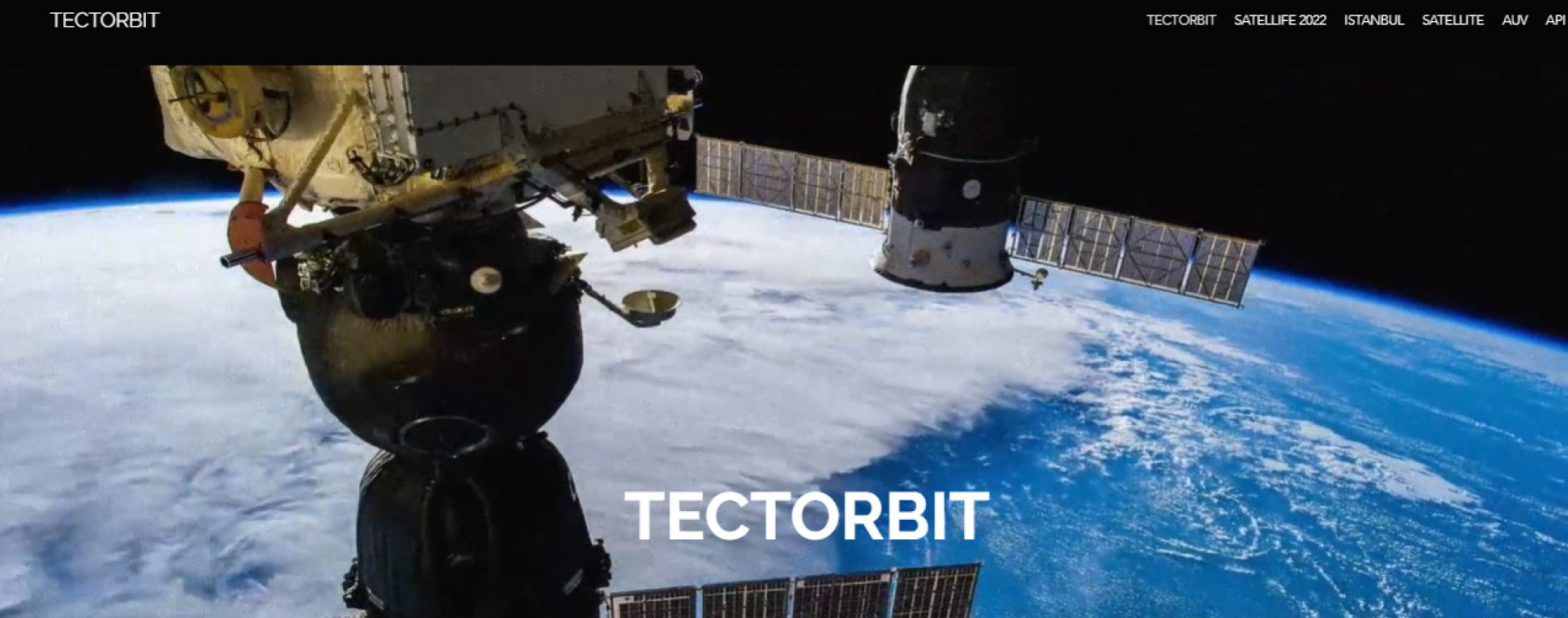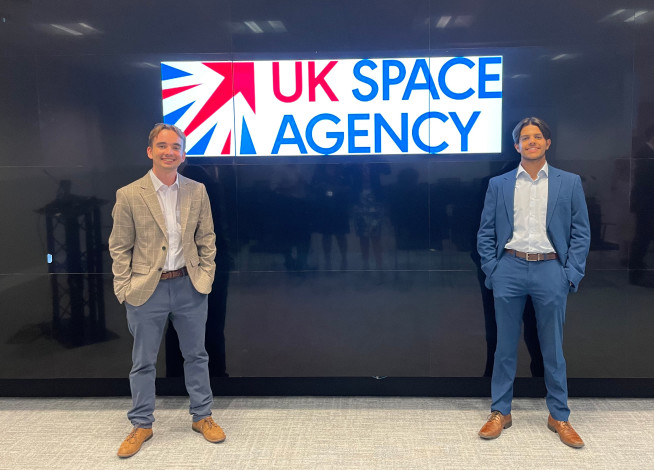ESE Students’ ‘TectOrbit’ entry wins Runner Up in SatelLife competition

ESE undergraduates Aryan Shah (L) and Michael Clark (R)
Undergraduate students in Earth Science and Engineering (ESE) have succeeded with their entry to the UK Space Agency’s SatelLife competition.
ESE undergraduates, Aryan Shah and Michael Clark – both studying Earth and Planetary Science at Imperial College London, have won runner up for the UK Space Agency’s SatelLife Competition, with their entry ‘TectOrbit’.
The premise of the competition was that “the UK Space Agency offered young people expert advice for their ideas of how satellites could improve life on Earth and a share of a £50,000 prize.”
Shah and Clark’s idea was to combine publicly and globally available satellite images with data collected by Autonomous Underwater Vehicles (AUVs), and run through a deep learning algorithm to help predict earthquakes, with the potential to save thousands of lives.
This future-thinking idea would use Earth Observation satellite data, and combine it with AUV data that will also be available through Shah’s startup in the future. The students presented their work as a website and won Runner Up in the Team category, impressing the judging panel with their ambitious project, as well as the unique format of their submission.
The panel, consisting of eminent professionals in the field of Space Applications from the UK Space Agency, the Satellite Applications Catapult, the European Space Agency and the Earth Observation Team of Ordnance Survey, said that TectOrbit had potential for expansion and development if it was supported.

Currently it is not possible to predict earthquakes, but the innovation demonstrated in TectOrbit shows that, by bringing together scientific knowledge and AI, it might be achievable in the future.
Due to their success in the initial stage of the competition, Shah and Clark were invited to a Dragon’s Den Event, to present TectOrbit to a panel of experts including Nick Appelyard, Head of Downstream Business Applications at the European Space Agency; Lucy Edge, Chief Operating Officer at Satellite Applications Catapult and Adam Brocklehurst, an IP consultant and Chartered Patent Attorney at K2 IP Ltd., at Harwell Science and Innovation campus at Oxford.
Building knowledge
The Earth and Planetary Science degree programme’s year-one modules provided a platform for the students to develop their idea. To prepare their submission, the students had to develop their understanding of machine learning and AI, building on the Python learnt in their first year ‘Programming for Geoscientists’ module, and were inspired after learning about InSAR (interferometric synthetic aperture radar), a remote sensing technique, in their Structural Geology module ‘Deforming the Earth.’
Reflecting on their involvement, Clark said: “The competition was a great way to take what we had learnt in first year and build on that knowledge”, adding that in developing their pitch there was also plenty of opportunity to meet academics and researchers in the department.
Enterprise in action
For Shah, who is Co-founder and CEO of InX Tech, an Imperial College-based startup that manufactures long-range AUV’s, it was an opportunity to bring together his knowledge and experience of the AUV technology, industry and systems integration, with geoscience knowledge to potentially help a lot of people.
“The spirit of Imperial is bringing science and enterprise together – which we did with TectOrbit – and also doing something that helps people and contributes to the UN Sustainable Development Goals”, said Shah.

Dr Philippa Mason, Senior Lecturer in Planetary Remote Sensing, who informed ESE undergraduates about the competition, said: “I am really impressed by TectOrbit. It is a fantastic idea, and the bid was very well executed, thanks to the vision and efforts of Aryan and Michael”.
The students are excited about what’s next, and hope TectOrbit will develop into something even bigger and better.
Article text (excluding photos or graphics) © Imperial College London.
Photos and graphics subject to third party copyright used with permission or © Imperial College London.
Reporter
Victoria Murphy
Institute of Global Health Innovation